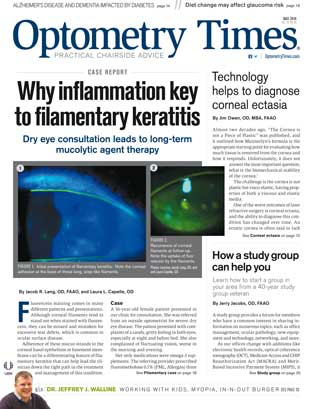Alzheimer’s disease and dementia impacted by diabetes

A new study shows that mean blood sugar levels as reflected by glycosylated hemoglobin (HbA1c) were strongly associated with cognitive decline and dementia. This was assessed by multiple validated cognitive assessments over a 10-year period and after controlling for other risk factors like age, body mass index (BMI), and blood pressure.1
Previous work has suggested that higher mean blood glucose levels in people both with and without diabetes is associated with increased risk of dementia. Other reports show that glucose variability also increases the risk of cognitive dysfunction in patients with established diabetes.2,3
Cognitive function and diabetes
This new analysis uses multiple metrics of cognitive function and an extended follow-up period. The study showed a progressive, linear decline in cognition with each incremental increase in average HbA1c over the 10-year study.
This same “mean A1c” approach (referred to as “A1c years”) was recently associated with a significantly higher risk of diabetic retinopathy (DR) and its progression.4
Previously from Dr. Chous: Benefits of color vison testing in diabetes
Acute and chronic hypoglycemia is also strongly associated with increased risk of Alzheimer’s and non-Alzheimer’s dementia.5 It appears that relatively subtle but chronic hyperglycemia and hypoglycemia both significantly increase the chances of developing mild cognitive impairment (MCI); a 50 percent increased risk of MCI was shown for mean glucose <85 mg/dl and >113 mg/dl, suggesting that a narrow range of mean glucose minimizes the risk of cognitive decline with advancing age.6
For ODs, it is noteworthy that there is evidence of a link between diabetic retinopathy (DR) and cognitive impairment, but patients with minimal DR demonstrated more cognitive impairment than those with advanced DR. This suggests that mechanisms other than microvascular insult may be responsible for diabetes-associated cognitive decline.7-9
A recent analysis showed that DR was not significantly related to dementia in type 1 diabetes. This may be a direct consequence of the mechanistic differences between type 1 and type 2 diabetes. 10
Previous work has shown that brain insulin resistance is a common feature of Alzheimer’s disease (AD). Type 2 diabetes is primarily a disorder of worsening peripheral insulin resistance that may ultimately affect central nervous system insulin sensitivity, leading some scientists to dub AD as “type 3 diabetes.”11
New technologies in the works
Several technologies are emerging as potential biomarkers of both dementia and diabetes, as well as their progression. These technologies include thinning of the neural retina on optical coherence tomography (OCT), as well as reduced macular capillary density and blood flow using OCT angiography.12-15
Related: Worldwide diabetes epidemic approaches half a billion
This may give ODs a better opportunity to assist with early diagnosis and intervention.
Dietary protocol promising
Rates of diabetes and Alzheimer’s disease are increasing as the number of older Americans continues to rise.16 It behooves ODs to investigate and minimize all common biological causes. A protocol to reduce the progression of early Alzheimer’s-type dementia showed high success over a two-year period in a small study at UCLA Medical Center.17
This program included reduced intake of refined carbohydrates, elimination of gluten/processed foods, fasting at least 12 hours between dinner and breakfast, increased intake of omega-3 fatty acids, melatonin along with vitamins D and B12, regular physical activity, adequate sleep (seven to eight hours), and stress reduction via daily yoga and meditation.
For patients with diabetes, adopting these strategies along with good metabolic control may serve to reduce the increased risk of cognitive impairment and enhance quality of life.
References
1. Zheng F, Yan L, Yang Z, Zhong B, Xie W. HbA1c, diabetes and cognitive decline: the English Longitudinal Study of Ageing. Diabetologia. 2018 Apr;61(4):839-848.
2. Crane PK, Walker R, Larson EB. Glucose levels and risk of dementia. N Engl J Med. 2013 Nov 7;369(19):1863-4.
3. Kim C, Sohn JH, Jang MU, Kim SH, Choi MG, Ryu OH, Lee S, Choi HC. Association between Visit-to-Visit Glucose Variability and Cognitive Function in Aged Type 2 Diabetic Patients: A Cross-Sectional Study. PLoS One. 2015 Jul 1;10(7):e0132118.
4. Farias LB, Lavinsky D, Lavinsky J, Banfica CZ, Schneider W, Tetelbom P, Canani L. Macular Choroidal Thickness, Volume and Hemisphere Asymmetry in Patients
With Diabetes and Microalbuminuria. ARVO Annual Meeting Abstract. Investigative Ophthalmology & Visual Science. June 2017. Vol.58, 86.
5. Rhee SY. Hypoglycemia and Dementia. Endocrinol Metab (Seoul). 2017 Jun;32(2):195-199.
6. Wang F, Zhao M, Han Z, Li D, Zhang S, Zhang Y, Kong X, Zhang Q, Lei P. Long-Term Subclinical Hyperglycemia and Hypoglycemia as Independent Risk Factors for Mild Cognitive Impairment in Elderly People. Tohoku J Exp Med. 2017 Jun;242(2):121-128.
7. Roberts RO, Geda YE, Knopman DS, Christianson TJ, Pankratz VS, Boeve BF, Vella A, Rocca WA, Petersen RC. Association of duration and severity of diabetes mellitus with mild cognitive impairment. Arch Neurol. 2008 Aug;65(8):1066-73.
8. Crosby-Nwaobi R, Sivaprasad S, Forbes A. A systematic review of the association of diabetic retinopathy and cognitive impairment in people with type 2 diabetes. Diabetes Res Clin Pract. 2012 May;96:101–110.
9. Crosby-Nwaobi RR, Sivaprasad S, Amiel S, Forbes A. The Relationship Between Diabetic Retinopathy and Cognitive Impairment. Diabetes Care. 2013 Oct;36(10):3177-3186.
10. Rodill LG, Exalto LG, Gilsanz P, Biessels GJ, Quesenberry CP Jr, Whitmer RA. Diabetic Retinopathy and Dementia in Type 1 Diabetes. Alzheimer Dis Assoc Disord. 2017 Dec 19.
11. Arnold SE, Arvanitakis Z, Macauley-Rambach SL, Koenig AM, Wang HY, Ahima RS, Craft S, Gandy S, Buettner C, Stoeckel LE, Holtzman DM, Nathan DM. Brain insulin resistance in type 2 diabetes and Alzheimer disease: concepts and conundrums. Nat Rev Neurol. 2018 Mar;14(3):168-181.
12. Cheung CY, Ong YT, Hilal S, Ikram MK, Low S, Ong YL, Venketasubramanian N, Yap P, Seow D, Chen CL, Wong TY. Retinal ganglion cell analysis using high-definition optical coherence tomography in patients with mild cognitive impairment and Alzheimer's disease. J Alzheimers Dis. 2015;45(1):45-56.
13. Choi JA, Kim HW, Kwon JW, Shim YS, Jee DH, Yun JS, Ahn YB, Park CK, Ko SH. Early inner retinal thinning and cardiovascular autonomic dysfunction in type 2 diabetes. PLoS One. 2017 Mar 23;12(3):e0174377.
14. Kim K, Kim ES, Yu SY. Optical coherence tomography angiography analysis of foveal microvascular changes and inner retinal layer thinning in patients with diabetes. Br J Ophthalmol. 2017 Dec 19.
15. Bulut M, Kurtuluà Ÿ F, Gözkaya O, Erol MK, Cengiz A, Akñdan M, Yaman A. Evaluation of optical coherence tomography angiographic findings in Alzheimer's type dementia. Br J Ophthalmol. 2018 Feb;102(2):233-237.
16. Sridhar GR, Lakshmi G, Nagamani G. Emerging links between type 2 diabetes and Alzheimer’s disease. World J Diabetes. 2015 Jun 10; 6(5): 744–751.
17. Bredesen DE. Reversal of cognitive decline: A novel therapeutic program. Aging (Albany NY). 2014 Sep;6(9):707-17.

Newsletter
Want more insights like this? Subscribe to Optometry Times and get clinical pearls and practice tips delivered straight to your inbox.